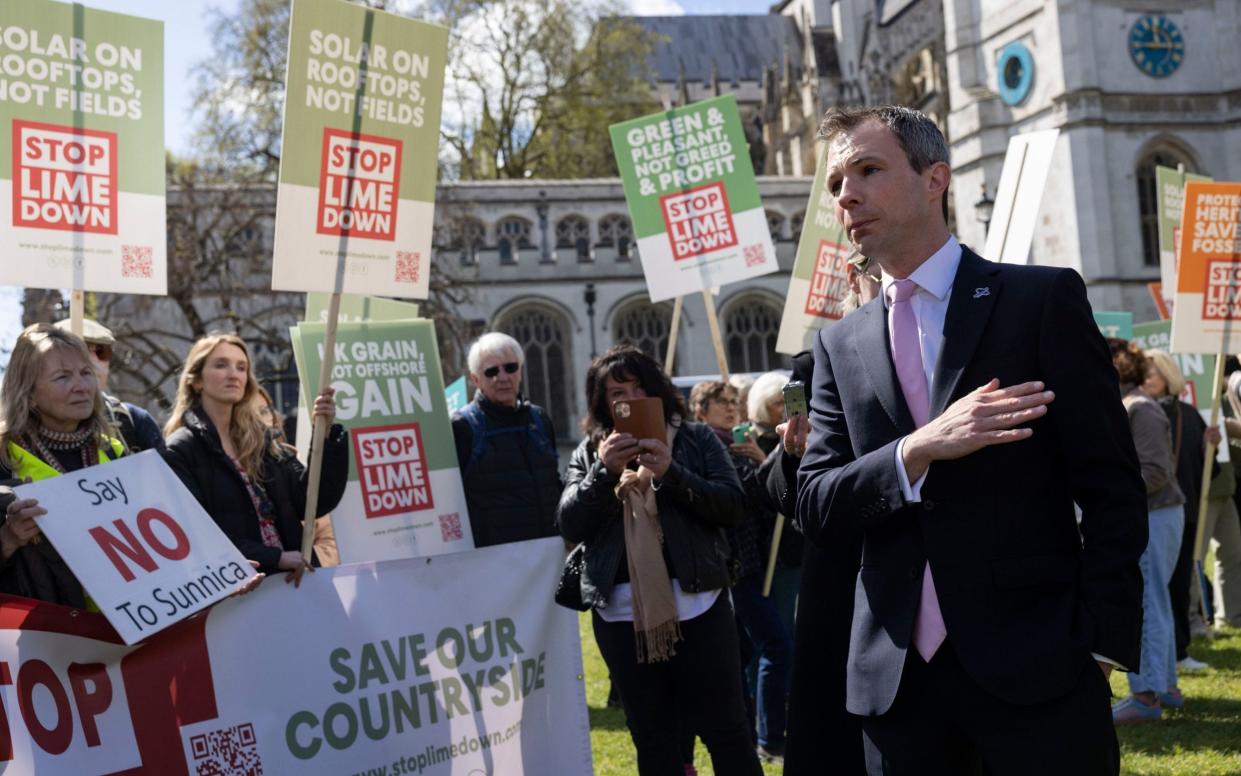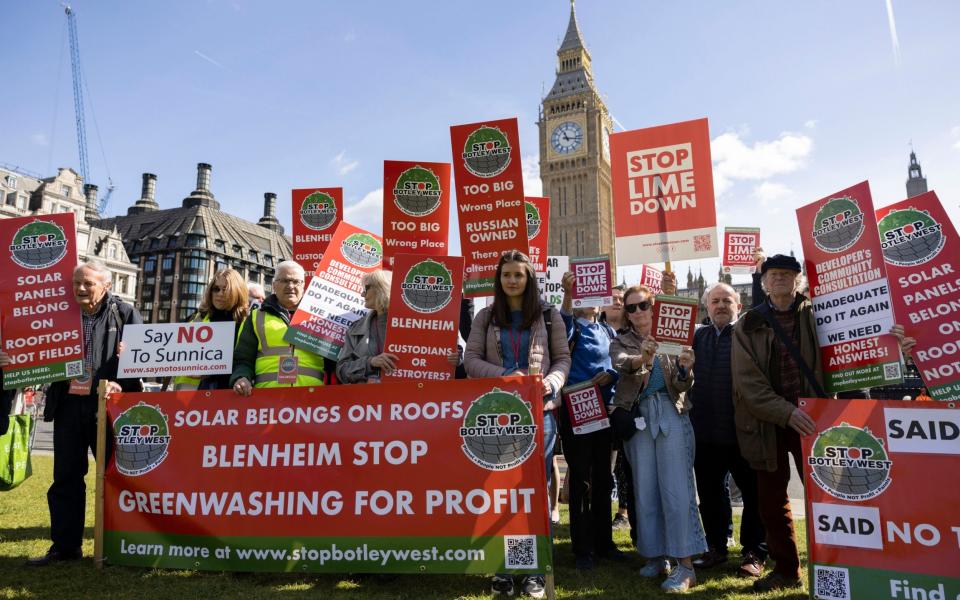Renewable energy minister backs anti-solar protests

The renewable energy minister has backed anti-solar protests, telling a rally of campaigners in Westminster that their concerns are “completely legitimate”.
Andrew Bowie joined dozens of campaigners outside Parliament on Thursday and called for more protections to stop large-scale solar farms being built in the countryside.
“There are so many communities across the country who are seeing a huge increase in applications for large-scale solar farms,” he said.
“And the concern, and in some cases panic, that this is causing in communities is completely understandable, completely legitimate.”
Mr Bowie said the Government was actively looking into what they can do to protect valuable farmland from being used for large-scale solar farms.
Restrictions on solar farms would be another rollback on the Government’s net zero policies, which have come under pressure from some within the party.
Campaigners demand changes to planning process
The Government wants 70Gw of solar energy in the electricity grid by 2035, more than four times the current level, to help meet its net zero goals.
But it is facing opposition from residents in Conservative constituencies and backbench MPs over the growth of large-scale solar farms in the countryside.

Rishi Sunak in his leadership bid promised that agricultural land would not be covered with solar panels, but campaigners say not enough has been done to change the planning process.
Projects that have faced protests include a vast 2,500 acre development project at Botley West, in the Oxfordshire countryside, and a similarly sized proposal from solar developers Sunnica on the border between Suffolk and Cambridgeshire.
“It’s incumbent on all of us involved in the system to listen to the concerns and do what we can to mitigate that,” Mr Bowie said.
In England, large solar farms must get a green light from the energy secretary but are considered of “critical national priority”, meaning consent is expected to be given.
Although national guidance says solar farms should be sited on previously developed and non-agricultural land it does not prohibit using farmland.
To build on valuable agricultural land, developers must show they have considered brownfield sites, but there are concerns this has become a tick-box exercise.
Planning process ‘needs to be rectified’
Speaking during a debate in Westminster later on Thursday, Mr Bowie said that the Government shares concerns that developers were not properly considering alternatives sites for solar farms.
“This is something that needs to be rectified,” he added.
Landowners can be enticed by the financial rewards of leasing to solar developers, which can bring in some ten times more than crops on the same land.
“The Government considers there is a strong need for increased ground-mounted solar,” Mr Bowie told MPs.
“However, I and the department recognise that as with any new developments, solar projects may impact on communities and the environment.”
He added that “the planning system must allow all views to be taken into account”.
Analysis for the Government has calculated that reaching the 70Gw target would take up an extra 1,500 square kilometres, or around 0.6 per cent of UK land.
But Mr Bowie said the figures did not reflect the danger of clusters of large solar farms in certain parts of the country, particularly close to National Grid connections.

 Yahoo News
Yahoo News 
